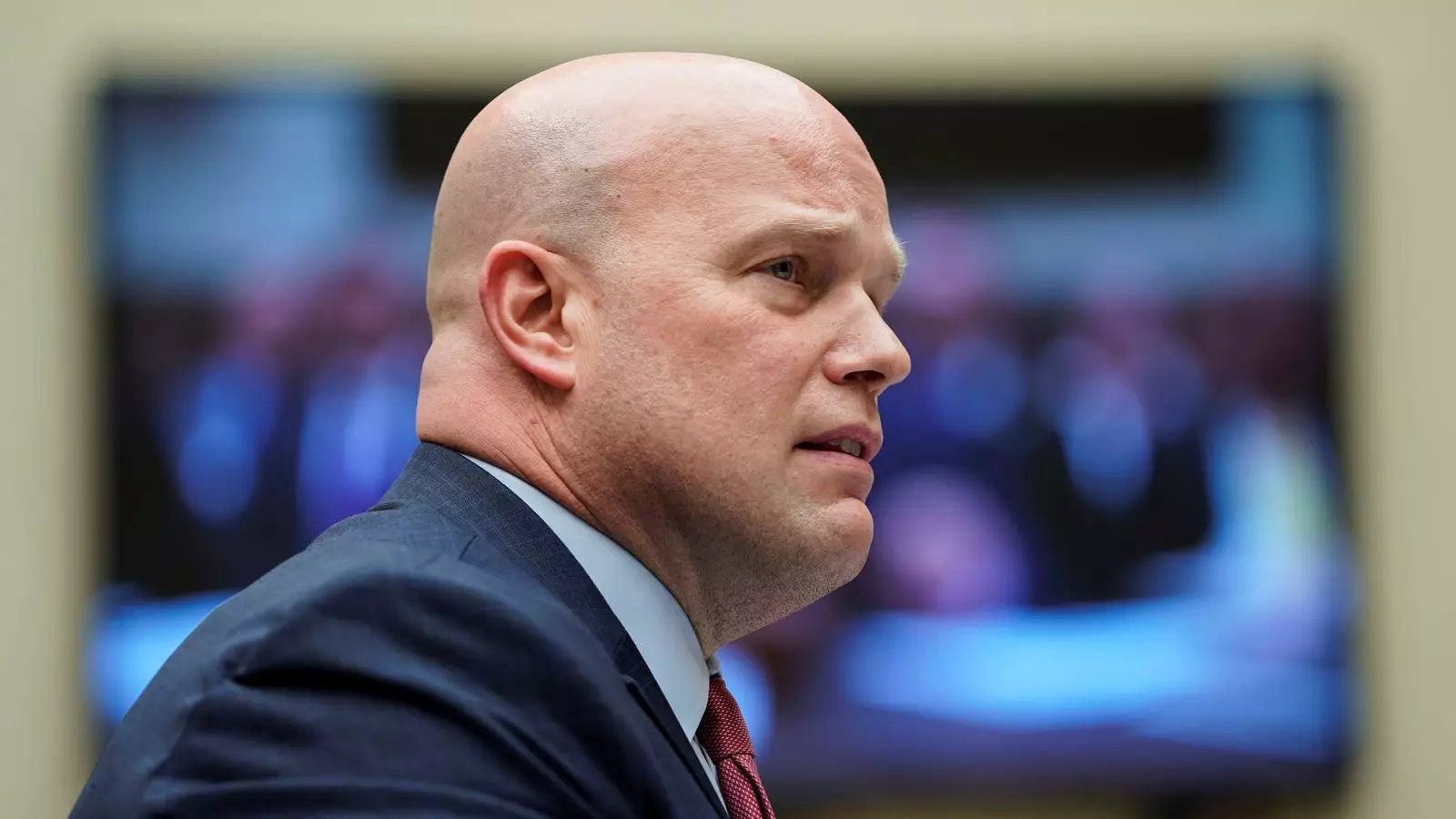In an alarming push for the militarization of member states, the United States has declared that NATO allies, particularly the UK, must collectively commit to spending at least 5% of their national income on defense. This aggressive stance comes from Matthew Whitaker, the former ambassador to NATO under the Trump administration, who made it clear that such a commitment is not merely a suggestion but a hard-and-fast requirement. “Peace through strength” has often been a mantra of Western politics, but this directive has turned it into a rallying cry for an even more belligerent posture, suggesting that countries must prioritize military expenditures above all else.
Whitaker’s suggestive language—using terms like “commitment” rather than “pledge”—heightens the situation. It insinuates an urgent necessity for NATO members to shift their priorities and budgetary allocations almost immediately. While some may argue that bolstering defense spending is vital in light of current geopolitical tensions, there is an unsettling reach of American influence as it pressures European allies into a militaristic paradigm dictated by U.S. interests. Such behavior is a dangerous departure from cooperative diplomacy, pushing nations to put swords before ploughshares.
The UK’s Reluctant Preparation
The situation in the UK is particularly poignant, as opposition leader Sir Keir Starmer finds himself cornered by these stringent demands. Initially suggested as a “pure ambition” to increase defense investment from 2.3% to 3% by 2034, Starmer now must contend with the overwhelming pressure to raise this figure to 5%. This not only puts the United Kingdom’s fiscal stability at risk but also dilutes the essence of democratic debate in British politics. The government, already strained by budget cuts and mounting crises in healthcare and social services, must confront the prospect of prioritizing military spending at a time when its citizens need robust support in domestic programs.
This drive towards excessive defense expenditure is likely to trigger internal dissent, particularly among economic decision-makers who are already concerned about the costs of increased militarization. The Ministry of Defence (MoD) is reportedly bemused by the insistence on raising allocations so rapidly. They recognize the inevitable shift but face the reality of what such escalations signify—an institutional pivot away from traditional welfare models in favor of military enhancement, creating disparities in civil society.
World Politics in Turbulent Waters
It’s alarming to think of the real implications of a 5% GDP expenditure on national security. NATO secretary-general Mark Rutte’s declarations echo the urgency of the moment, stating explicitly that sticking to the current 2% target is naive at best, dangerous at worst. The underlying concern here is not merely financial but hints at a philosophical and ethical question about the role of defense in societal development. Should countries be urged to draw lines in sand—their budgets—when what is urgently needed is dialogue and responsible engagement against malevolent threats?
The stakes are beautifully illustrated as Rutte contemplates the future of Europe’s security architecture, suggesting that sustaining NATO’s alliance will necessitate heightened military expenditure both quantitatively and qualitatively. While strengthening national security is a legitimate prerogative, the mechanisms through which this strength is realized must be scrutinized. Should the focus be on weaponry and advanced systems when global security dilemmas could be better resolved through fair negotiations and non-violent measures?
As the world navigates a complex and hostile geopolitical landscape, the emphasis on military investments raises profound questions about political priorities and ethical responsibilities. While defense is undoubtedly necessary, infusing it with economic resources at such a high percentage could lead to a range of social and political destabilizations. The potential ramifications extend far beyond mere budget figures; they ripple through the fabric of society, setting a tone for governance that prioritizes aggression over collaboration. As advocates of center-wing liberalism, we must question whether these increasingly unyielding demands serve the ultimate aim of peace or merely respond to the specter of war. The question remains: Is it possible to nurture a defense strategy that embodies strength while upholding the values of democracy and welfare? The answer will define the next chapter for NATO and global security.


Leave a Reply